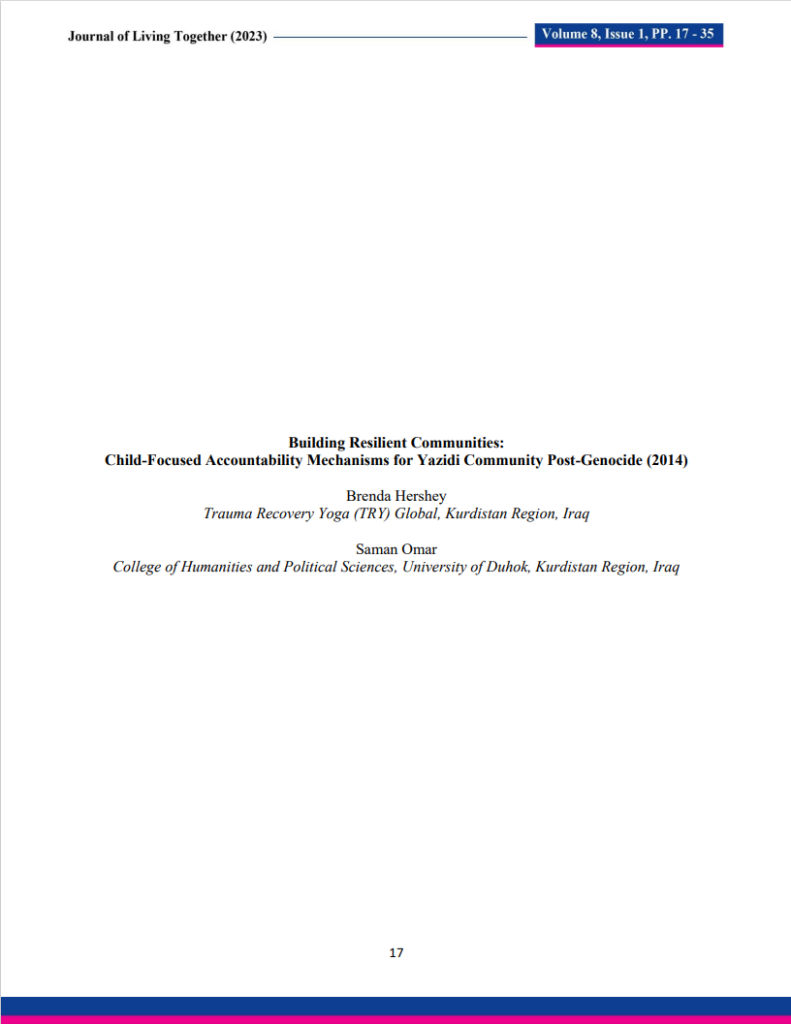The War in Tigray: Statement of the International Center for Ethno-Religious Mediation

The International Center for Ethno-Religious Mediation strongly condemns the ongoing war in Tigray and calls for the development of a sustainable peace.
Millions have been displaced, hundreds of thousands have been abused, and thousands have been killed. Despite the humanitarian ceasefire announced by the government, the region remains under a total blackout, with little food or medicine getting in, as well as little media information getting out.
As the world is rightfully opposed to the ongoing aggression by Russia against Ukraine, it must not forget about the intolerable conditions the Ethiopian people are going through.
The International Center for Ethno-Religious Mediation calls upon all sides to respect the cessation of hostilities and to successfully conduct peace negotiations. We also call for humanitarian corridors to be opened up immediately to allow for the delivery of food, water, medicine, and other necessities to the Tigray people.
While we recognize the complexity of setting out a framework for governance that adequately addresses Ethiopia’s multi-ethnic legacy, we believe that the best solution to the Tigray conflict will come from Ethiopians themselves, and support the framework the A3+1 Mediation group has laid out to end the ongoing crisis. The ‘National Dialogue’ process offers hope for a potential diplomatic solution to this crisis and must be encouraged, though cannot serve as an alternative to legislation.
We call upon Abiy Ahmed and Debretsion Gebremichael to begin face-to-face negotiations with one another so that the conflict can be resolved as quickly as possible and civilians are spared from ever-repeating cycles of violence.
We also call upon leaders to allow for international organizations to investigate potential war crimes that have been committed by the government, Eritrean troops, and the TPLF.
All sides must make their best efforts to preserve cultural heritage sites, as these provide great value to the cultural fabric of humanity. Sites such as monasteries offer great historic, cultural, and religious value, and as such, should be preserved. Nuns, priests, and other clerics of these sites should not be disturbed either, regardless of their original ethnic background.
Civilians should be guaranteed the right to fair trials, and those who have carried out extrajudicial killings and committed inhuman acts of sexual violence should be held accountable.
This brutal war will not end until leaders on both sides commit to resolving their past issues, tackle the ongoing mass humanitarian crisis, cease power-mongering, and address each other in good faith.
The recent cessation of hostilities is a positive step forward, however, there must be a long-term peace agreement that can ensure a lasting stable civil society for generations to come. It is best left up to Ethiopians and their leadership for how this can come about, although international mediation should play a key role.
For a successful, free Ethiopia to rise out of the ashes of this gruesome war, leadership on both sides must be willing to make compromises while holding those responsible for war crimes accountable. The status quo that pits Tigray against the rest of Ethiopia is inherently unsustainable and will only lead to another war in the future.
ICERM calls for a carefully instituted mediation process, which we believe is the most effective means of achieving a successful diplomatic solution and peace in the region.
Peace must be achieved with justice, otherwise it is only a matter of time until conflict manifests again and civilians continue to pay the high price.
Conflict Systems in Ethiopia: A Panel Discussion
The panelists discussed the Tigray-Conflict in Ethiopia focusing on the role of historical narratives as a key force for social cohesion and fragmentation in Ethiopia. By using heritage as an analytical framework, the panel provided an understanding of Ethiopia´s socio-political realities and ideologies that are driving the current war.
Date: March 12, 2022 @ 10:00 am.
Panelists:
Dr. Hagos Abrha Abay, University of Hamburg, Germany; Postdoctoral Fellow at the Centre for the Study of Manuscript Cultures.
Dr. Wolbert G. C. Smidt, The Friedrich-Schiller-University Jena, Germany; Ethnohistorian, with over 200 research articles mainly on historical and anthropological themes focusing on Northeastern Africa.
Ms. Weyni Tesfai, Alumna of the University of Cologne, Germany; Cultural Anthropologist and Historian in the field of African Studies.
Chair of the Panel:
Dr. Awet T. Weldemichael, Professor and Queen’s National Scholar at Queen’s University at Kingston, Ontario, Canada. He is a member of the Royal Society of Canada, College of New Scholars. He is an expert of contemporary history and politics of the Horn of Africa on which he has widely spoken, written and published.

